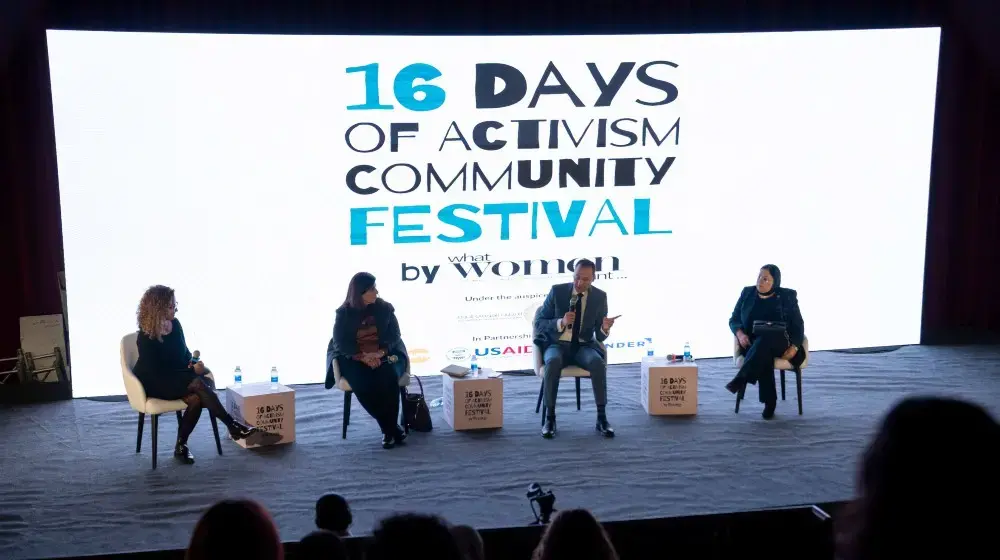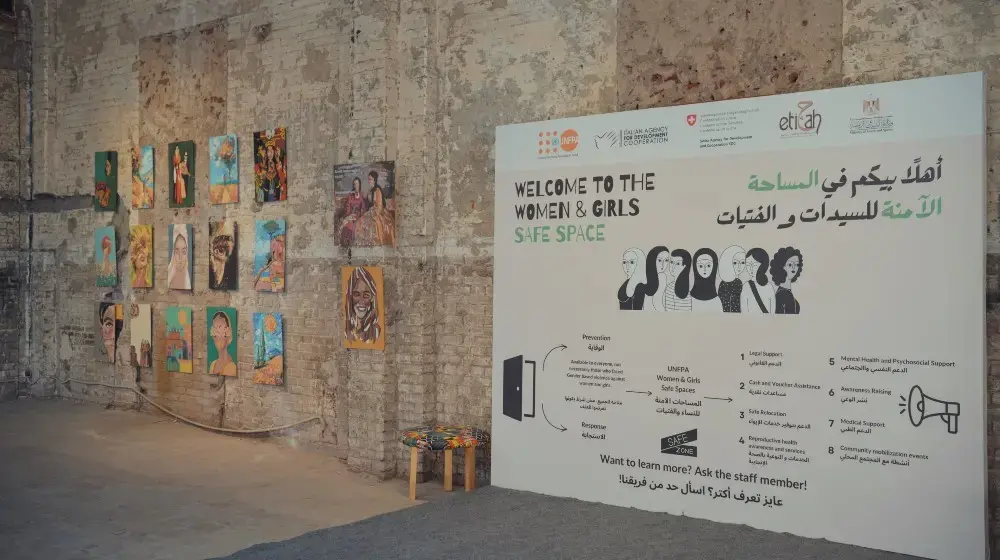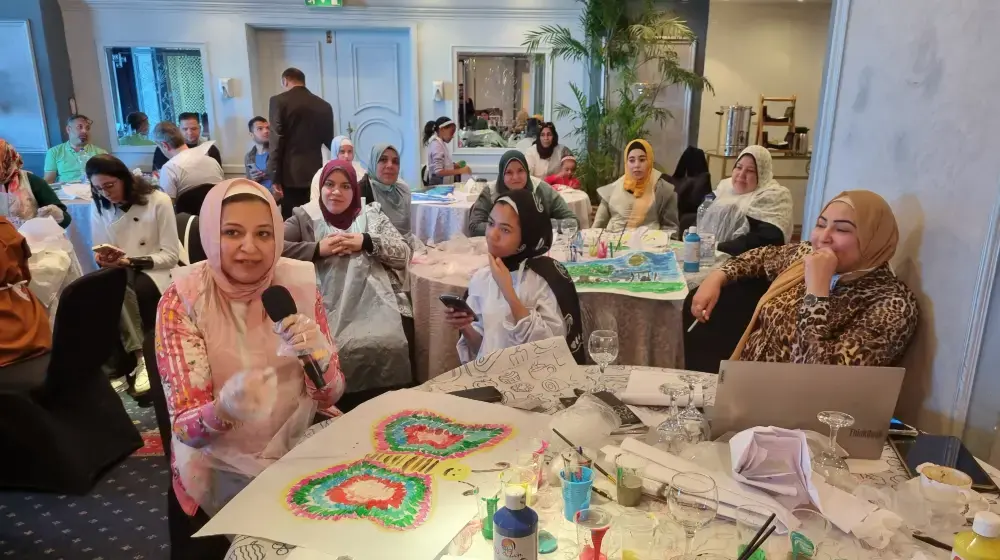Video
Syrians in Egypt help their communities protect against COVID-19
Aisha washes her hands thoroughly; before she moves on to sterilize her workstation. She disinfects the table and sewing machine she is going to use.
The Syrian national is one of tens of women at the UNFPA-supported Safe Spaces participating in an initiative to support their communities with the prevention of COVID-19 through sewing reusable facemasks, to be included in a dignity kit targeting women and girls from the Syrian and African communities.
The Safe Spaces, operated by Etijah Youth and Development Consultancy Institute and the Ministry of Youth and Sports, as well as CARE International Egypt, are designed for women and girls to access gender-based violence response services – including psychosocial, legal, and referral to health services – as well as reproductive health services. It is a place where they can also socialize and re-build their social networks, integrate with their Egyptian peers, receive social support, and acquire different skills.
Syrian women and girls in Egypt also attend vocational training workshops as part of the comprehensive services on prevention and protection from gender-based violence. Through the dignity kits initiative, the trained women and girls will now contribute to the COVID-19 response and protection of their families, friends and communities.
Aisha starts with cutting the cloth then sewing it to make the facemask, making sure she also sterilizes it with steam and alcohol-based disinfectants before packaging it to be included into the dignity kit.
Iman, a 39-year-old Syrian woman involved in the initiative, says the women make around 30 masks a day. So far the women at the Sanad Safe Space in Damietta, operated by Etijah, have produced 2500 masks.
The initiative aims to distribute 3500 kits at the Safe Spaces operated by CARE and 4500 for the Safe Spaces operated by Etijah and the Ministry of Youth and Sports.
UNFPA operates 13 Women and Girls Safe Spaces in seven governorates, Cairo, Giza, Alexandria, Sharqeya, Qaluibiya, Damietta, and Aswan, hosted with implementing partners such as Care and Etijah, and within youth centres under the Ministry of Youth and Sports. The Safe Spaces services have reached nearly 24,000 boys, girls, men, and women in 2019, with the support of the Italian Agency for Development Cooperation and the Embassy of Denmark in Egypt.




